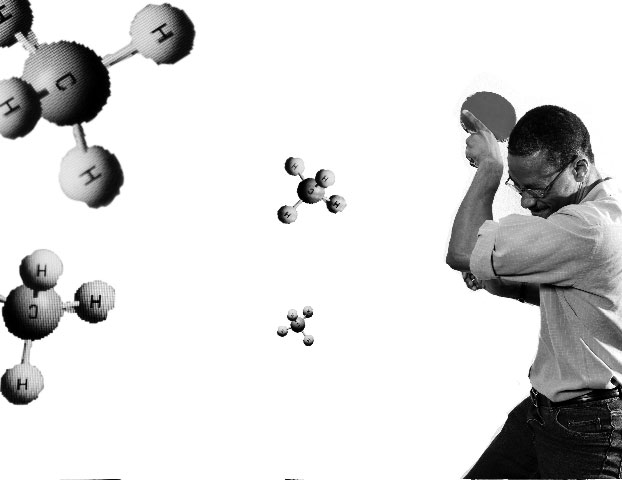Professor Sean McDowell
PROFESSOR OF THEORETICAL CHEMISTRY
DEPARTMENT OF BIOLOGICAL AND CHEMICAL SCIENCES
FACULTY OF PURE AND APPLIED SCIENCES
CAVE HILL CAMPUS, BARBADOS
Tel: (246) 417-4352 • Email: s.mcdowell@uwichill.edu.bb
PROFILE
Sean McDowell received a BSc (First-Class Honours) in Chemistry from The University of the West Indies, Mona , Jamaica in 1985, and a PhD in Theoretical Chemistry from the University of Cambridge in 1992. After postdoctoral studies at the University of Western Ontario, Canada (1993-1996), he joined the staff of The University of the West Indies, Cave Hill, Barbados in 1997 as a Lecturer, then Senior Lecturer in 2001 and Professor of Theoretical Chemistry in 2005. He has published numerous scientific papers and his work has been widely cited by other researchers. Professor McDowell is a member of the Royal Society of Chemistry and a past member of the New York Academy of Sciences. He has received recognition for his research from the Caribbean Academy of Sciences through a Young Scientist Award (1999), by UWI with the Vice Chancellor’s Award for Excellence in Research (2004) and a Visiting Fellowship to the University of Cambridge by the Engineering and Physical Sciences Research Council (EPSRC) of the United Kingdom (2005). Over the last seven years, Professor McDowell has investigated the properties of novel inert-gas compounds, as well as made important contributions to the understanding of hydrogen bonding, specifically the blue-shifted hydrogen bond, the origin and nature of which has been controversial. He used a theoretical model, in conjunction with and developed by Professor A. D. Buckingham of the University of Cambridge, to reliably predict the vibrational and structural changes in a number of blue-shifted hydrogen-bonded complexes. A relatively new finding obtained from this joint research is that the characteristic downfield shift of the isotropic proton magnetic resonance is much smaller, and in some cases, shifts to higher magnetic fields in blue-shifted complexes.
RESEARCH INTERESTS
• Theoretical studies of hydrogen bonding, especially of the unusual blue-shifting variety.
• Theoretical studies of the properties and stability of novel inert gas compounds.
• Theoretical studies of unusual molecules.
• Nonadditivity and cooperative effects in molecular clusters.
• Isotope effects in weakly bound complexes.
